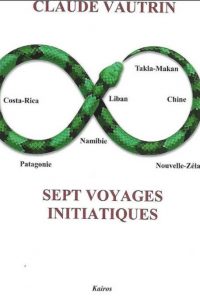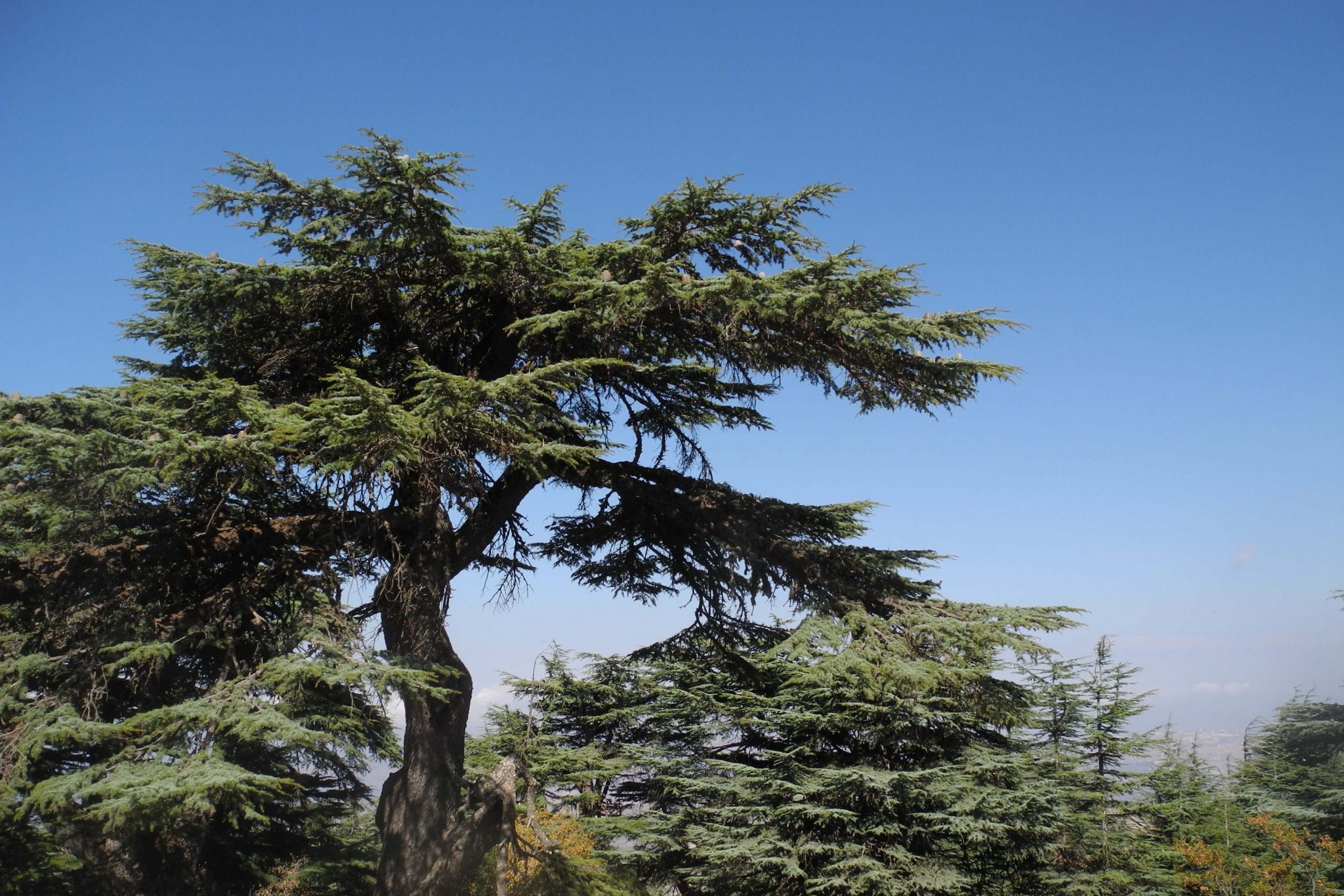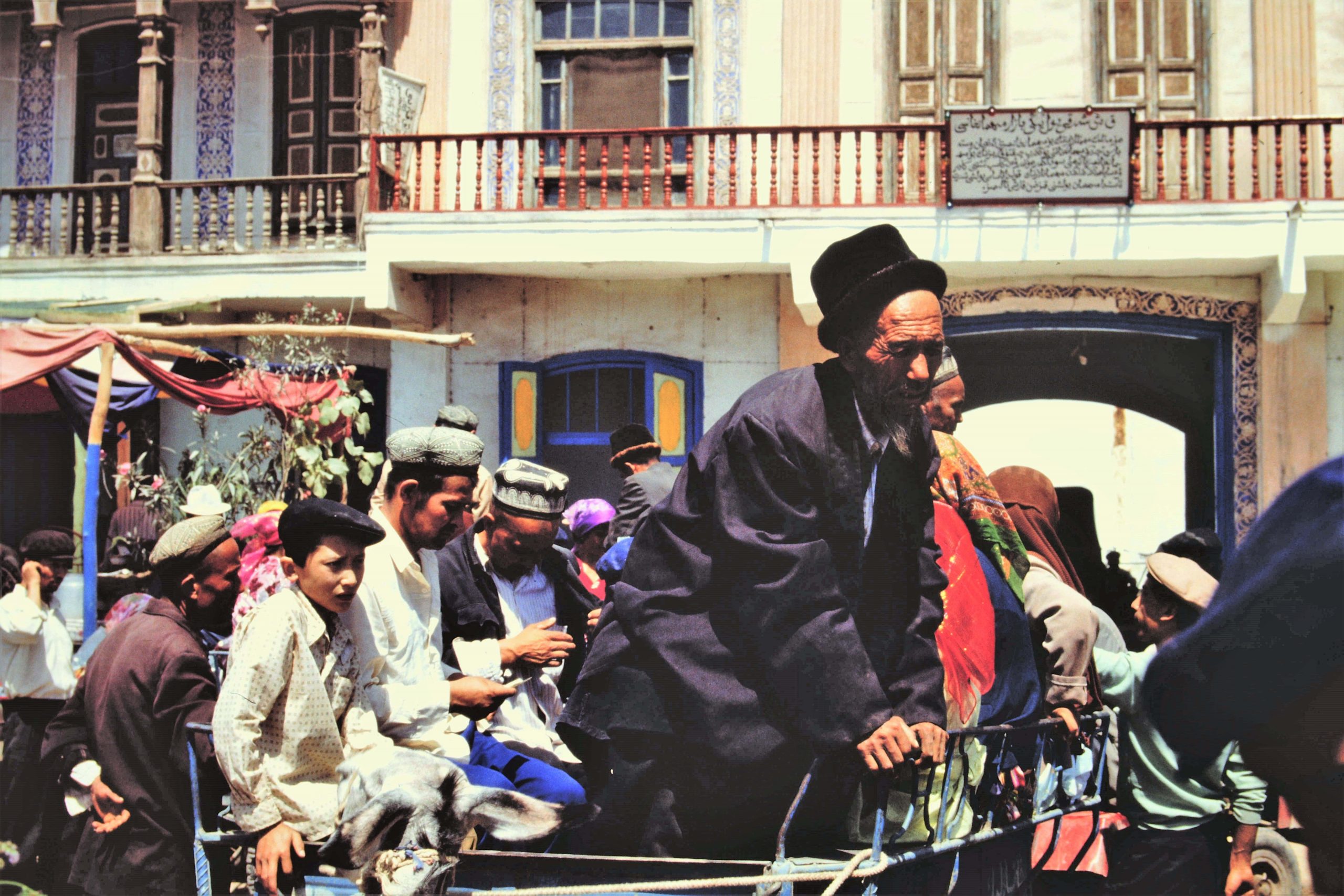Claude Vautrin’s latest book, Sept voyages initiatiques, published by Kaïros*, takes us to distant lands where the visible world and the invisible sphere meet. Journeys to better understand others and, therefore, to better know oneself. A must read.
Covering the news from the four corners of the world is the lot of all great reporters, as Claude Vautrin has done for years. However, in each of his reports, the Vosges journalist was not content to simply describe the events he witnessed. He wanted to understand. That means going beyond what we see, what we hear, what we know. We have to connect the facts, the people, the landscapes to tales, myths, legends, sometimes millennia old, sometimes elusive. We must go beyond the visible and scrutinize the invisible sphere. It is at the price of this effort that the journalist perceives another reality of the facts, of men, of their history. By adding his own imagination, Claude Vautrin gives us Seven initiatory journeys: from Costa Rica to New Zealand, from Patagonia to a little-known China, from Namibia to the torn Lebanon, reality feeds fiction. And vice versa. Interview with the author.
M.G.

In what way do the journeys you talk about in your last book have an initiatory impact?
Current events, past and present, actually inspire me. My travel notes, interviews during reports, improvised encounters at the end of the world have inspired me for this series of short stories. In China, threats – it’s recent – are hanging over the Three Gorges Dam, one of the most audacious and destructive dams ever built in the world, the setting for the new “Seeds from the Sky”. Actors in another of these seven initiatory journeys, “Red Sulphur”, the Uighurs, as the newspaper Libération recently reported in its front page, are living a genocide. Lebanon does not stop suffering, but this beautiful country radiates a sacred energy, the subject of “The Black Stone”. In this book, news feeds fiction. In Namibia, a young ethnologist investigates the former Nazis who have taken refuge there. But a snake, with all its strong symbolism, will haunt him. This is a good opportunity to reflect on this universal symbol. Each story is thus subject to reflection.
Do you want your readers to discover a part of the invisible sphere that surrounds each culture, each society and therefore each individual?
To meet the other is never insignificant. Latin America, Africa, the Middle East, Asia, Oceania …: the planet is full of myths, legends and fantasies. Journalists and human beings are busy reporting world news and cannot escape these hidden dimensions, even though they form part of a human group, a community or a society. Travelling the planet thus opens up, provided one is in search of oneself and others, unsuspected opportunities for encounters that are sometimes astonishing, raising questions about the condition of the human being, his relationship to others, his relationship to the universe, a truth to be sought after. In this they have an initiatory value.
The snake you were talking about is actually on the cover, in the form of an ouroboros!
By biting its own tail, this ouroboros reminds us that every end is a new beginning. It’s about metamorphosis. Every report, every encounter has built and transformed me, making me what I am today. The ouroboros, forming on the world map a figure eight, also takes the reader from the very peaceful Costa Rica to mysterious Patagonia, from the Skeleton Coast of Namibia to the cedars of a torn Lebanon, from the Taklamakan desert where red is a symbol, to the Three Gorges Dam in China, to find perhaps the centre of the world at the edge of the Pacific, in New Zealand! The beauty of nature and humanity in motion coexist for better or for worse!
Is this a philosophical reflection?
 If to philosophize is to seek the meaning of human existence, if to philosophize is to understand the deepest reason for things, then let us philosophize. This necessarily involves confrontation with the other, in order to better discover oneself. Seven initiatory journeys are rich in these beautiful encounters, whether they take the form of a quest, a passion, a fight, love, but also learning, sharing knowledge… In a changing world, this collection deals with the great question of transmission. I am thinking, for example, of Kile, the soothsayer, a real-life surfing champion I met in Costa Rica, discovering via Agostinho, the old musicos of the Caribbean coast, a tradition with a message that is ultimately universal. How does Tradition, its practices and values cope with the political, social, economic and cultural upheavals that are taking place? It is also a question that emerges. As I said, fiction is invited, reality feeds it. One thing is certain, these peregrinations have helped me to discover the man I am. Hence the great joy of sharing them! They have also helped to shape the journalist that I am. In La Pierre noire, Prune, a young woman and a great reporter, distances herself in Lebanon from her job, or at least from the violence that accompanies it on a daily basis. The planet is full of fabulous initiatives, respectful of others and of nature, which deserve our attention, without the navel-gazing and sensationalist tendencies that are often the result of the current media system.
If to philosophize is to seek the meaning of human existence, if to philosophize is to understand the deepest reason for things, then let us philosophize. This necessarily involves confrontation with the other, in order to better discover oneself. Seven initiatory journeys are rich in these beautiful encounters, whether they take the form of a quest, a passion, a fight, love, but also learning, sharing knowledge… In a changing world, this collection deals with the great question of transmission. I am thinking, for example, of Kile, the soothsayer, a real-life surfing champion I met in Costa Rica, discovering via Agostinho, the old musicos of the Caribbean coast, a tradition with a message that is ultimately universal. How does Tradition, its practices and values cope with the political, social, economic and cultural upheavals that are taking place? It is also a question that emerges. As I said, fiction is invited, reality feeds it. One thing is certain, these peregrinations have helped me to discover the man I am. Hence the great joy of sharing them! They have also helped to shape the journalist that I am. In La Pierre noire, Prune, a young woman and a great reporter, distances herself in Lebanon from her job, or at least from the violence that accompanies it on a daily basis. The planet is full of fabulous initiatives, respectful of others and of nature, which deserve our attention, without the navel-gazing and sensationalist tendencies that are often the result of the current media system.
…or a poetic-journalistic tale?
Did my humility suffer as a result, a reader gave me a very beautiful gift when he wrote about Seven Initiatory Journeys: “the words chosen make the illustrations useless because they are themselves, flavours, smells, colours and sounds, and above all full of meaning to be meditated upon. A real diamond to discover…”. So there is undoubtedly a touch of poetry in these writings! Knowing that they also want to be an ode to nature, so mistreated, and yet so beautiful. The glaciers of Patagonia, the lakes of New Zealand, the giant dunes of Sossusvlei in Namibia, the mountains of fire of Taklamakan, the cedar forests of Lebanon have all their place, in intense communion with those who protect them and who are worth all the Nobel Peace Prize in the world. This interdependence is, for me, a true source of inspiration.
A word about the characters?
Age, sex, profession, temperament, project: all of them are of course, as we all are, unique beings. An intense curiosity, a passion, however, animates them. What they have in common is that they are all on a quest, therefore in movement. On the Pacific coast, Kile, the renowned Costa Rican surfing champion is looking for another light, coming from far away, from the past. In Patagonia, Stephane, an expatriate goes in search of the last Selk’man, to finally discover a lost rite. In Namibia, a young ethnologist is interested in the former Nazis and finally falls under another spell, a magical one. Prune, a great reporter, discovers, not without peril, the virtues of the sacred cedar of Lebanon. In the Taklamakan desert, Anne, the archaeologist, plunges into the drama of the Uighur people and opens up new horizons of passion. Coming to do business in China, an engineer commits himself to the audacious safeguarding of heritage. As for Alex, he is on his way to… beauty in the heart of Jade Island, New Zealand. But that’s all I’m going to say!
Last question. Why seven?
“Seven is hard” is the slogan of Marlon, one of the characters in this book. Enigmatic, the sentence is inscribed in a rounded shape, in a terrestrial globe in the center of which springs in red the word “Zuni”, one of the branches of the Pueblo tribe. In New Mexico, in the arid relief, the first clan, known as the parrots, occupies the middle of the city mysteriously called “the here”, a city conceived in fact from the reunion of seven ancient villages. We are in Indian America. Macumba, Buddha, chakras, Mecca, Jericho, Thebes…: the seven invites itself everywhere on the planet, in sometimes unknown, mysterious territories. Like the ouroboros, this number symbolizes a cycle, a dynamic, a transformation, a passage from the known to the unknown. In this, it is risk-taking, a questioning of who we are. Going to meet the other is not innocent. Seven probably speaks to me for this reason.
“Sept voyages initiatiques” by Claude Vautrin (Editions Kaïros) 131 pages. 15 euros.


